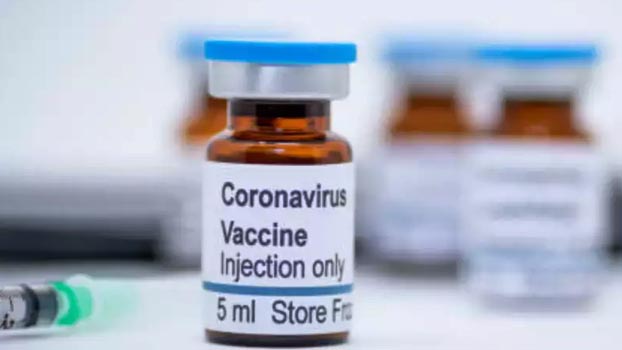Bangladesh allows Chinese Covid-19 vaccine to test on healthcare workers

The icddr,b gets the government’s approval to carry out the late-stage trial of the Chinese Covid-19 vaccine on healthcare workers in Bangladesh.
Director of the regulatory body, Bangladesh Medical Research Council (BMRC), Dr. Mahmood-uz-jahan told Bangladesh Post that they have given the “ethical approval” for the phase 3 trial of the vaccine being developed by China’s Sinovac Research and Development Limited Company.
“Now it’ll depend on the icddr,b how fast they can complete all the administrative process to start the trial,” he said.
There is no official confirmation from the icddr,b about the signing of the contract with the Sinovac.
When asked, a spokesperson of the icddr,b’s communication unit told Bangladesh Post that “We are working on it (vaccine trial). But it is still early to make any comment”.
The virus first emerged in China in December last year. The WHO declared the virus pandemic on March 11. It has killed hundreds of thousands of people and ravaged the global economy.
Bangladesh confirmed over 200,000 cases so far. The death rate is 1.28 percent in Bangladesh, according to the health department. The recovery rate is around 54.59 percent.
So far, no vaccine has been approved for commercial use.
According to the WHO, there are 19 vaccine trials in clinical evaluation and hundreds being developed and tested around the world to stop the pandemic.
China's Sinovac Biotech is one of three companies conducting the phase 3 trial. They have already started the trial in Brazil.
AstraZeneca's vaccine, developed by researchers at the Oxford University, and China National Pharmaceutical Group (Sinopharm) are the only other candidates in the Phase 3 trials.
Moderna plans to start its third-phase trial by July.
Phase 1 and Phase 2 trials typically test the safety of a drug before it enters Phase 3 trials that test its efficacy.
The BMRC director told Bangladesh Post that the research would be conducted on healthcare workers in seven hospitals.
“4200 candidates will be taken with half of them will get the vaccine,” he said, adding that the vaccine would be applied by taking consent from them.
The hospitals are - Mughda Medical College Hospital, Dhaka Medical College Hospital Burn Unit-1, Kurmitola General Hospital, Holy Family Red Crescent Medical College Hospital, Kuwait-Bangladesh Friendship Hospital, Dhaka Medical College Hospital Unit -2 and Dhaka Mohanagar Hospital.
“The icddr,b will have to take the administrative approval from those institutions where they will start the trial,” the director said.
“We gave them the ethical approval so that they can do it in Bangladesh,” he said, adding that icddr,b submitted the protocol to them for the trial.
Last month, during the visit of Chinese medical team, Deputy Chief of Mission at the Chinese Embassy in Dhaka Hualong Yan said Bangladesh as an “important friend” would get priority if they can successfully develop any vaccine.
World leaders also called upon the international community to ensure the access of the vaccine, once available, to all so that no one is left behind.
United Nations Secretary General António Guterres also pushed for equitable distribution saying that “none of us is safe until all of us are safe.”
Prime Minister of Canada Justin Trudeau, President of Ethiopia Sahle-Work Zewde, President of South Korea Moon Jae-in, Prime Minister of New Zealand Jacinda Ardern, President of South Africa (also chairperson of the African Union) Cyril Ramaphosa, Prime Minister of Spain Pedro Sánchez Pérez-Castejón, Prime Minister of Sweden Stefan Lofven, and Prime Minister of Tunisia Elyes Fakhfakh in a joint op-ed also made the call.
They wrote “While global cooperation in terms of resources, expertise and experiences is paramount for developing a vaccine, manufacturing and distributing it while leaving no one behind will truly put global cooperation to the test”.
“Therefore, we must urgently ensure that vaccines will be distributed according to a set of transparent, equitable and scientifically sound principles. Where you live should not determine whether you live, and global solidarity is central to saving lives and protecting the economy.”
There are already local, regional and global initiatives to secure vaccine availability, including the Covid-19 Vaccine Global Access (COVAX) Facility.
The WHO is also spearheading some initiatives.
There are also ongoing efforts by the vaccine alliance, GAVI, and the Coalition for Epidemic Preparedness Innovations (CEPI) as part of the vaccines pillar of the Access to COVID-19 Tools (ACT) Accelerator.
The International Vaccine Institute (IVI) also works to make vaccines available and accessible for vulnerable populations in developing countries.



